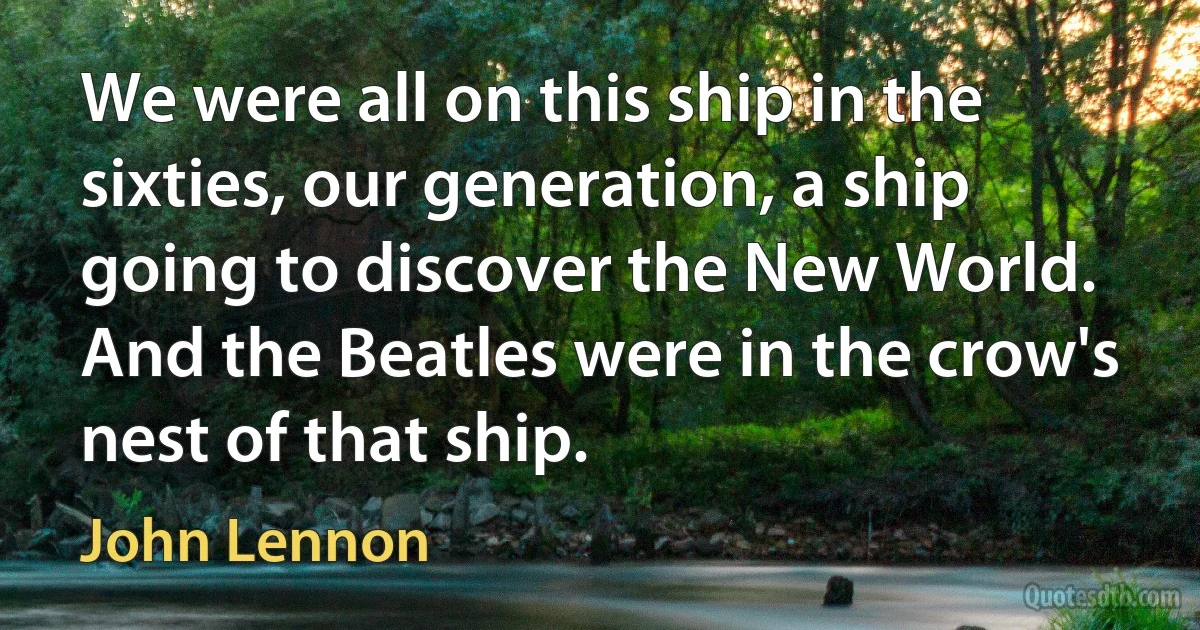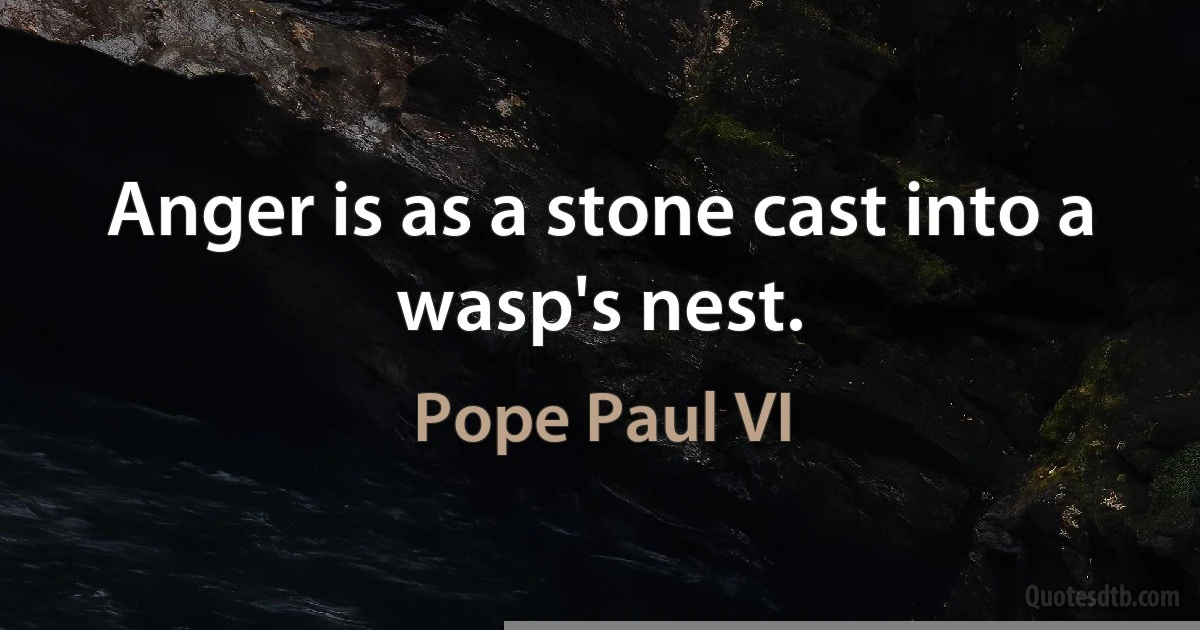Nest Quotes - page 3
The priesthood have, in all ancient nations, nearly monopolized learning. Read over again all the accounts we have of Hindoos, Chaldeans, Persians, Greeks, Romans, Celts, Teutons, we shall find that priests had all the knowledge, and really governed mankind. Examine Mahometanism, trace Christianity from its first promulgation; knowledge has been almost exclusively confined to the clergy. And, even since the Reformation, when or where has existed a Protestant or dissenting sect who would tolerate [a free inquiry]? The blackest billingsgate, most ungentlemanly insolence, the most yahooish brutality is patiently endured, countenanced, propagated and applauded. But touch a solemn truth in collision with a dogma of a sect, though capable of the clearest proof, and you will soon find you have disturbed a nest, and the hornets will swarm about your legs and hands, and fly into your face and eyes.

John Adams
I sat on my bed and I said to God: You've taken her, but you haven't got me yet. I know Your cunning. It's You who take us up to a high place and offer us the whole universe. You're a devil, God, tempting us to leap. But I don't want Your peace and I don't want Your love. I wanted something very simple and very easy: I wanted Sarah for a lifetime and You took her away. With Your great schemes You ruin our happiness like a harvester ruins a mouse's nest: I hate You, God, I hate You as though You existed.

Graham Greene
Well, now I've said it, my son was looking for God. I mean for a clear image of Him. He spent that whole blazing equatorial day in the crow's nest of the schooner watching that thing on the beach of the Encantadas till it was too dark to see it, and when he came back down the rigging, he said, Well, now I've seen Him!-and he meant God...

Tennessee Williams
How shall I tell what I saw? The towers are not all broken - here and there one still stands, like a great tree in a forest, and the birds nest high. But the towers themselves look blind, for the gods are gone. I saw a fishhawk, catching fish in the river. I saw a little dance of white butterflies over a great heap of broken stones and columns. I went there and looked about me - there was a carved stone with cut - letters, broken in half. I can read letters but I could not understand these. They said UBTREAS. There was also the shattered image of a man or a god. It had been made of white stone and he wore his hair tied back like a woman's. His name was ASHING, as I read on the cracked half of a stone. I thought it wise to pray to ASHING, though I do not know that god.

Stephen Vincent Benét
Perhaps because of my fever, perhaps because of my lofty pain, I imagine that some one there is declaiming a great poem, that some one is speaking of Prometheus. He has stolen light from the gods. In his entrails he feels the pain, always beginning again, always fresh, gathering from evening to evening, when the vulture steals to him as it would steal to its nest. And you feel that we are all like Prometheus because of desire, but there is neither vulture nor gods.
There is no paradise except that which we create in the great tomb of the churches. There is no hell, no inferno except the frenzy of living.
There is no mysterious fire. I have stolen the truth. I have stolen the whole truth. I have seen sacred things, tragic things, pure things, and I was right. I have seen shameful things, and I was right. And so I have entered the kingdom of truth, if, while preserving respect to truth and without soiling it, we can use the expression that deceit and religious blasphemy employ.

Henri Barbusse
Nixon will be remembered as a classic case of a smart man shitting in his own nest. But he also shit in our nests, and that was the crime that history will burn on his memory like a brand. By disgracing and degrading the Presidency of the United States, by fleeing the White House like a diseased cur, Richard Nixon broke the heart of the American Dream.

Hunter S. Thompson
The desire for security, very marked in women, draws the weaker among them to men who, by their strength or ability, seem to offer protection and support. In time of war they count a warrior's scalps; in time of peace they hunt for genius or wealth. To the man in love the giving of gifts is a way of asserting his power. The penguin and the banker offer pebbles of varying brilliance to their respective loved ones. The finch presents twigs and leaves to its mate as the young man presents woolen threads in the form of carpets and curtains to his fiancee. The swallow and the woman begin to thing of the nest the moment they have chosen their males.

André Maurois
Life today is an autopoietic, photosynthetic phenomenon, planetary in scale. A chemical transmutation of sunlight, it exuberantly tries to spread, to outgrow itself. Yet by reproducing, it maintains itself and its past even as it grows. Life transforms to meet the contingencies of its changing environment and in doing so changes that environment. By degrees the environment becomes absorbed into the processes of life, becomes less a static, inanimate backdrop and more and more like a house, nest, or shell-that is, an involved, constructed part of an organic being.

Lynn Margulis



